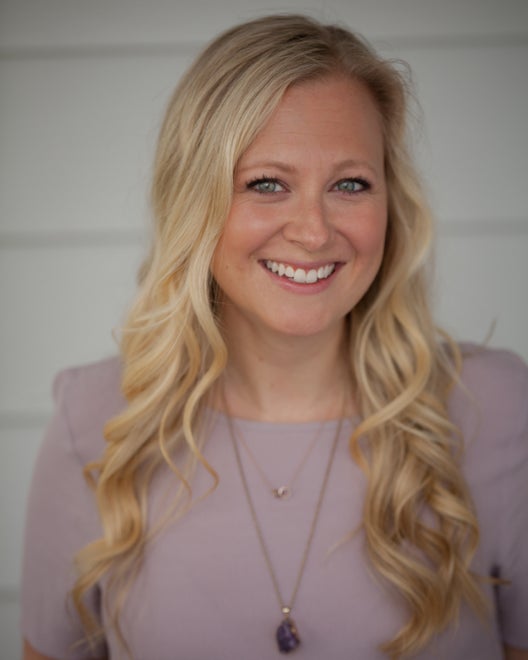
Featuring: Keyrsten McEwan, RHN of Keyrsten McEwan Nutrition + Wellness
"I grew up in South Delta and moved back about 15 years ago because I missed the small town vibe. I love going to the grocery store and seeing clients and friends from elementary school. I love how small businesses support and promote each other. I love that I have a short walk to the most gorgeous beach. Although I work with clients from all across North America, I am so grateful to have my home base here.”
A South Delta business she recommends: Willow Oak Business Consulting
When stress, the greedy ‘nutrient stealer’ uses up our bodies’ resources, we can feel drained and ill-equipped to navigate life. Keyrsten McEwan has made it her life’s work to investigate how nutrition and wellness impacts everything from sleep to appetite and discover how making even minor changes can give amazing results. The holistic nutritionist helps identify imbalances and symptoms related to health concerns to guide her clients with supportive nutrition and lifestyle strategies. We heard how a personal health scare empowered her to explore the benefits of small, realistic changes and piqued her interest in nutrition. Thirteen years later and she’s an industry leader with an insatiable appetite for continuous learning. The highly respected expert resides in South Delta but has clients across North American and a far-reaching impact on nutrition education. Keyrstren finds joy in teaching and shaping her practice by helping build the curriculum at the Canadian School of Natural Nutrition (CSNN). Although she can’t help geeking out on the antioxidant benefits of blueberries — conveniently sourced from local fields near her South Delta home — she also gets real by recognizing that pasta and wine is food for the soul.
You’ve been in business since 2009; have you always offered the same services?
Yes and no. In the beginning, for about the first ten years, I mostly saw clients one-on-one and in a clinical setting. I still see clients in that more intimate setting; I'd say that about 50% of my business is working with clients that way, where we talk about their health goals and support a movement towards nutrition, supplementation, and lifestyle practices. The other half of my business is education-based. I teach for CSNN, which is the school I attended. I also help with curriculum development for their programs.Another piece of my work is corporate lunch and learns and webinars. I love doing that stuff because it’s a fun way to introduce ideas without being intimidating. It's just light, you get to learn something, and maybe take away a few tidbits without having to make commitments like financially investing in a nutritionist. Finally, I'm about to launch a specialized, 10-week nutrition program specifically related to stress and anxiety. It's called From Busy to Balanced. It's all about how we can support our resilience to stress with nutrition and by creating rituals. I’m really proud of my new program, because it's been a culmination of what I've gone through personally and also draws on experience from my whole career. I'm super excited to launch it; I think it addresses such an important topic.
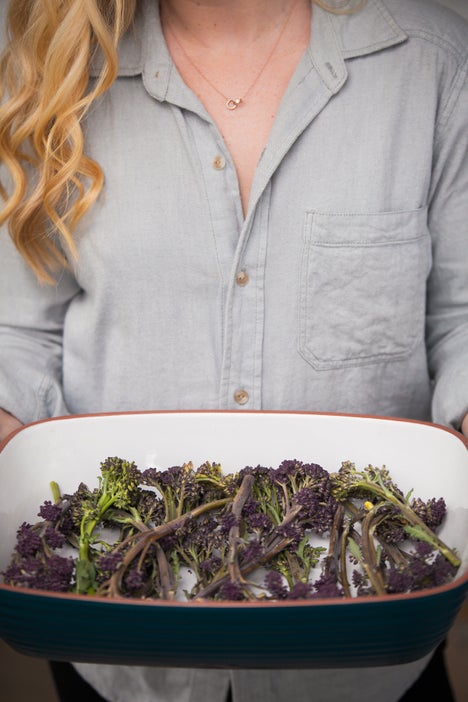
Why is stress management an important facet of your work?
For a lot of people in healthcare, when they have a personal experience with something, they find what works for them and then it becomes really important for them to share that with others. All of my work in nutrition stems from personal experience. I had a health scare when I was in my early 20s; basically I was told I had cancer lymphoma. I didn't — thank goodness — but it kind of changed everything for me. It really got me thinking about what I could be doing to make sure that I was in my best, healthiest body and a lot of that really centered around nutrition.In my case I wasn't sick like I thought I might be, but it was the first time in my life that I got really curious about nutrition. Usually when you're in your early 20s that’s not really something that you think about, right? You kind of think you're invincible! But I wanted to make sure nobody ever gave me a diagnosis like that again. I had a lot of health questions, and I found a lot of the answers involved nutrition. When I started to change what and how I was eating, everything changed for me, and that transformation inspired me to go the nutrition route. Although I didn't have cancer, I realized I certainly wasn't in optimal health either. Making changes had big effects; my energy increased, I had way less anxiety, and I was sleeping better — all these things that I didn't even really know were problematic for me. It was like, ‘oh, is this what it feels like to be healthy?’ I think sometimes we just kind of get used to feeling not so great. Obviously I had a lot of stress and anxiety through that experience and I felt that the nutritional lifestyle changes that I was making were so helpful. And so it's been something that I've worked on with clients for my entire career, but I’ve noticed in the past two years especially that almost every single client that I work with has stress at the centre of everything. If we're constantly in a stress response state, nothing else can get better; our immune system is affected, our digestion is affected — everything's affected. Because it's apparently really common to be stressed out, busy, and overwhelmed, we just think it's normal. And I think that sort of old-school way of looking at stress that focuses on stress reduction just isn't realistic for so many people. That’s why I decided to create this program focused on that specific aspect of health. My approach is more about acknowledging that if we can't change some of the stressors, maybe we can create a greater physical resilience to stress. Plus we can work on some of the mindset stuff by creating really amazing morning and evening rituals, just to pause things for a second. It's not about pretending your stress isn't there, but becoming more resilient in the face of it. I know what it's like to feel so stressed and overwhelmed that it’s like your body's falling apart. But I also know there are some really simple things we can do to try to manage that better, so of course I want to share that information.
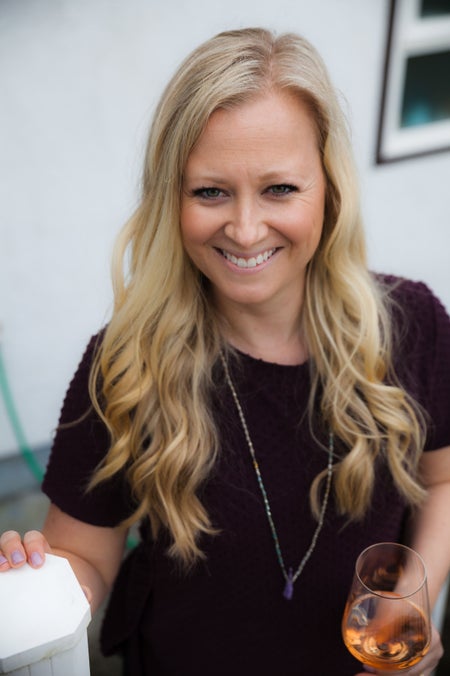
It’s amazing how a few tweaks can really change someone’s quality of life. Would you say that’s how your approach is different from others in your field?
I think the really important point to drive home is that there’s not necessarily this one thing that everybody should do. But there are these small, simple things that sometimes seem insignificant but can really make such a big difference. I think when people consider nutrition, it feels overwhelming. They think they're going to have to change their whole life and literally overhaul everything — and that just isn't true.My approach is not about taking away all of your favourite things and drastically remodelling your entire life. I try to focus on simple things we can incorporate that feel really realistic for you. It's about consistency of habits, not trying a new diet or protocol.Our bodies give us clues to what’s really going on. When I work with clients I go through an intake process to learn more about them and find out what their life is like and what their diet is like. I get more clarity on what their health goals are, and then collaboratively we come up with a plan to help support their body system, including addressing possible imbalances or potential nutrient deficiencies that I suspect they might have. For example, when we're in a constant stress response — fight or flight — we use up a lot of magnesium, which is a nutrient that helps us feel calm and relaxed. Magnesium deficiency has been linked to higher rates of anxiety and inflammation, so you can imagine how nutritional deficiencies like that can have a physical impact. I had a client who was going through a really stressful period in her life; she wasn't sleeping well and when she’d try to go for runs she’d get so tired and get muscle cramps. When she started taking a magnesium supplement at night, she slept through the night for the first time in five years.In terms of what I offer, I think my experience is one of the things that sets me apart. I've been doing this for quite some time. When I first graduated, nobody knew what a holistic nutritionist really was, beyond someone who tells people what to eat. It's come a long way. I remember everyone asking ‘you’re doing what? What the heck is holistic nutrition?’ It wasn’t long after that I was working with thousands of clients at one of the most well-known naturopathic clinics in the country.
Let’s talk about the education piece of your work. Why is it important for you to teach?
Well, first and foremost, it helps me learn, too. I think, as a healthcare professional in a science-based profession, it’s important to always keep learning, continue to be curious, and continue to examine the new information that comes out. When I have to know the concepts and applications and protocols and everything so well I can break them down and explain it to others, it ensures I also truly learn the information. Another reason I teach is because I'm so passionate about the industry as a whole. I want to make sure that up-and-coming nutritionists have the best possible education. I'm really involved in the curriculum on a national level, so pretty much every person that graduates from CSNN, whether they’re here in Canada or taking the programs remotely from abroad, comes into contact with something that I've helped create. I think that’s so amazing.
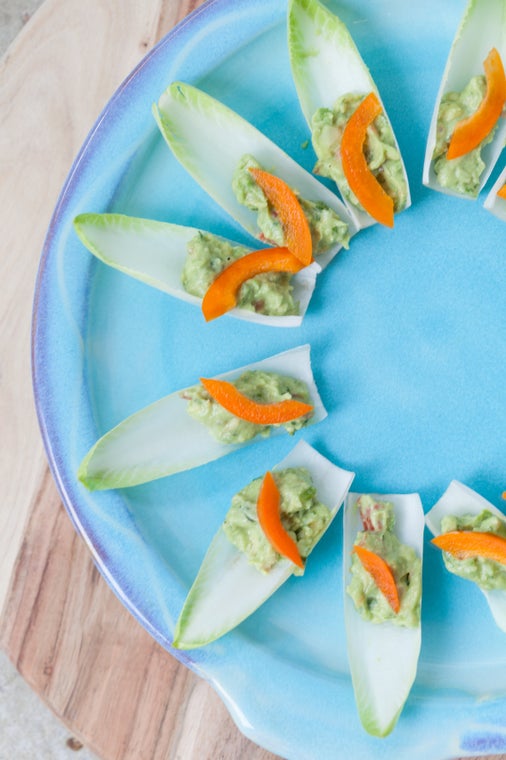
What inspired you to work in South Delta?
I love it here! I just love my community so much. I mean I grew up here, my family lives here, and my husband's family lives here. I love, love, love the small town aspect — I love running into my clients at the grocery store, for example. That small-towness where you know your butcher, Heath down at Newman’s, and everybody else around is something I really enjoy. I talk to a lot of other colleagues who work elsewhere and they don't know their neighbours, or who owns what shop. I think that Ladner and Tsawwassen have such a strong support network in the business community; you just don't get that in other places. When I tell my colleagues that I drive around twice a week to deliver supplements to my local clients, they're like, ‘what?!’ I just love that I can do that here, and these days you don’t always get to see people in person, so it’s even better being able to offer that personable service and connection to my clients. Honestly, I think it helps me compete with the big corporations of the world, too. Someone can send me an email saying ‘I need this’ and I'm able to say ‘sure, I'll drop it off tomorrow!’ So why wouldn't you order it from me instead of Amazon?Sometimes I honestly can't even believe that I get paid to do some of this stuff. I just think it's so much fun! I think I have the coolest job ever. I get to talk about food all day and I get to help people. I think that's what really keeps me showing up. I know the power that nutrition has for health and I want to make sure I get the word out and touch as many people as I can. Because, like I said, I really, truly believe that there are small things we can all be doing every day that can change the course of our health. It’s super inspiring.
That is inspiring! Last question: what's your favourite food?
I'm obsessed with blueberries. I put them in smoothies, yogurt, everything. I love that they’re a super food — there's tons of research on the antioxidants — but it's something that I can literally walk down the street to grab. We’re so lucky to live amongst the blueberry fields here. I always have frozen blueberries, no matter what time of year it is, and then fresh, obviously, in the summer. I live in Tsawwassen First Nation down by the mall and when I go for a walk every day there are literally blueberry fields 5 minutes away from home. So that would be my healthy favourite, and then for my indulgent side I'd say a glass of wine and a bowl of pasta. It feeds the soul, which I think is also so important.
Often when we look at nutrition, people only talk about the super healthy foods; that’s great, and of course, that's part of what I do, but I also think sometimes the wrong choice is the right choice. It’s managing your health at a different level. It's not just about vitamins and minerals all the time. I think if you have the right mind frame around food, preparing your own food can almost be meditative. I don't cook dinner from scratch every single night, although I try to as much as I can. But sometimes, when I’m cooking without any time constraints and I’m just chopping vegetables to make soup or something, I feel present and at ease. It's not always like that for everybody all the time, but I think if you can get in the right headspace it can be so good.
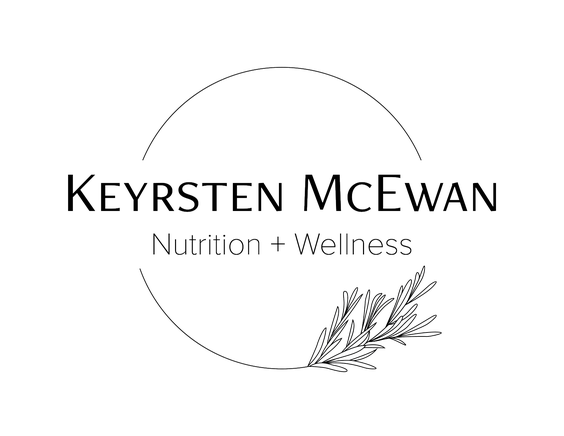
Connect with Keyrsten McEwan Nutrition + Wellness on Facebook, Instagram, and LinkedIn or visit her website.Sign up for our e-newsletter to receive customized South Delta real estate reports, community news, and more business + lifestyle features like these.Interested in being featured or know someone we should feature? Please get in touch.
